We’re Totally Obsessed with Metalworker Erica Moody’s Chic Serving Pieces
The Maine-based pro crafts her singular wares inside an antique barn.
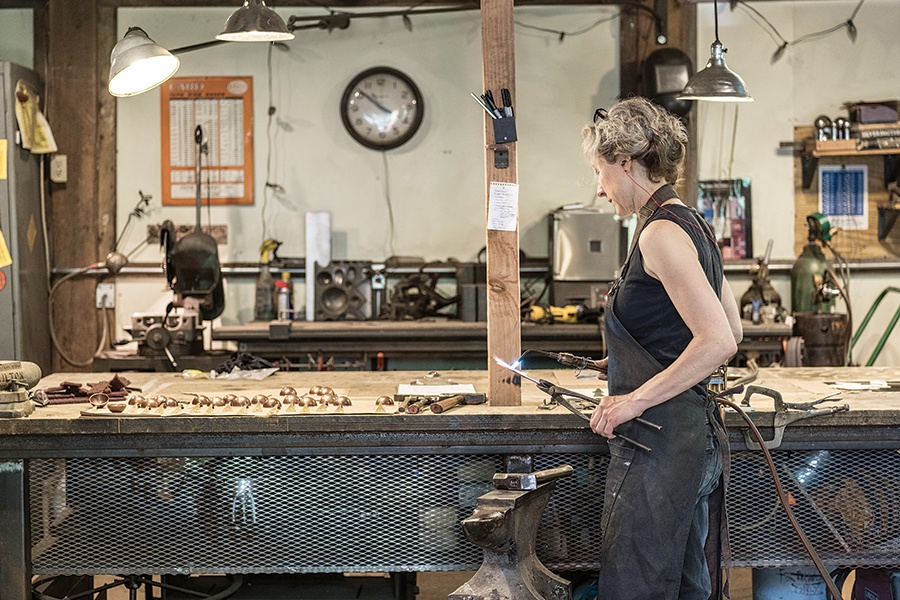
Standing at her anvil, metalworker Erica Moody uses a torch to heat an oyster knife before forging its blade. / Photo by Erin Little
Metalworker Erica Moody credits one of the first pieces of serving ware she created to a little bit of magic. Up late one night in her Waldoboro, Maine, barn turned workshop in 2016, Moody was inspired to forge a pie server as a gift for a friend who had a reputation for baking fantastic confections. A decidedly hands-on creator, Moody doesn’t go through numerous iterations of designing, testing, or reworking. Instead, she lets her nearly 30 years of metal-working experience speak through her hands, shaping what feels good above all else. “I just dive in and start playing around with material,” she says.
On this “magical evening,” as Moody describes it, she plucked a steel rod from her scrap pile and began heating and bending it to form a curved handle. Next, for the blade, she called on a piece of brass, manipulating it to resemble the sleek shape of an antique pie server she owns. After riveting the handle to the blade, Moody went to make a few slight tweaks. But, with the pieces clamped together, she squished some brass a little too much at the section where they met. “At first I thought, ‘Oh, no!’” Moody says. “But it was so lovely how the brass formed around the steel. [The mistake] became another magical moment because I ended up doing that with all [the servers I made after that].”
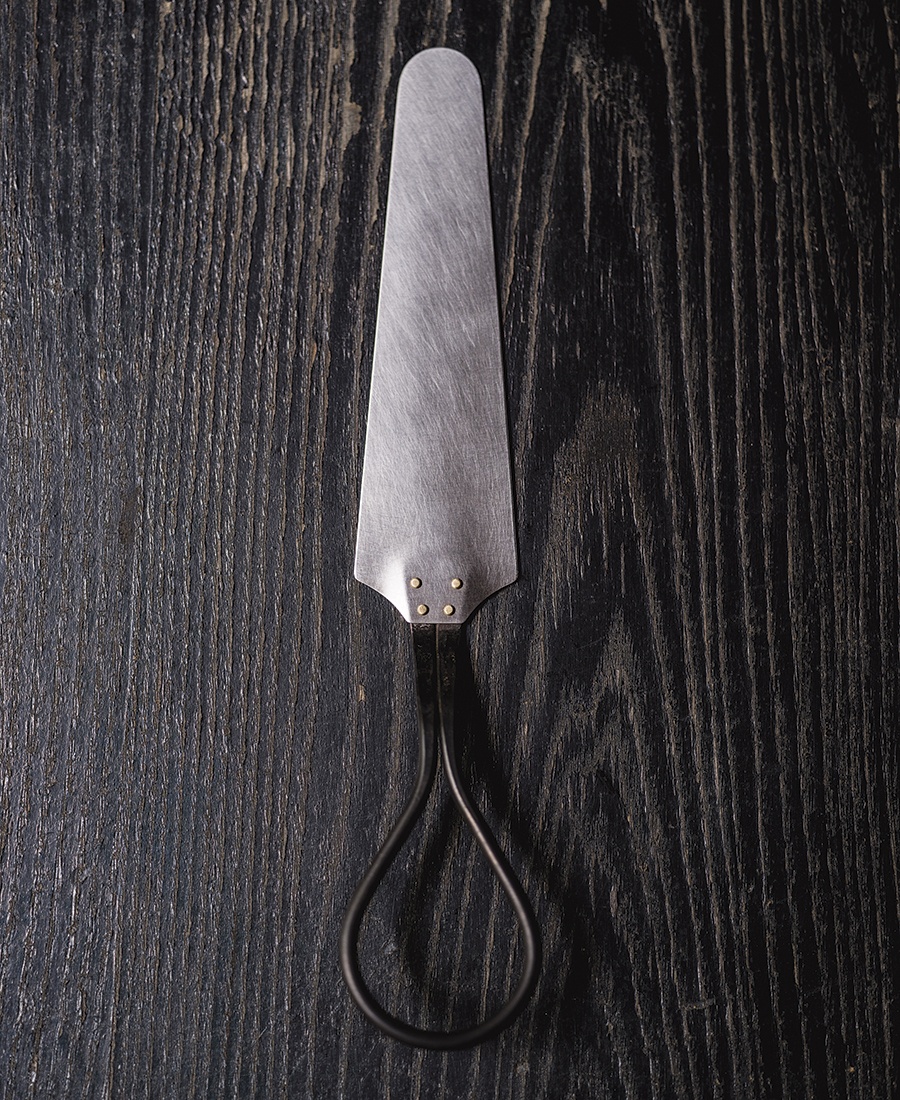
The original design of Moody’s pie server—one of her most popular items—features a brass blade, though it comes in stainless steel as well. / Photo by Erin Little
Moody has always reveled in the quirks of the design process, even as a budding artisan. Back then, the upstate New York native cut her teeth as an apprentice to a sculptor and self-taught metalworker in Boston. She created custom projects for his clients, delighting in the challenge of “making something that seemed impossible,” she says. From sculptural handrails to oversize art pieces, Moody churned out architectural wonders that scratched her itch for problem-solving and, at the same time, allowed her to enjoy the freewheeling existence of a craftsperson, a lifestyle she admired in her artist friends. “They had this creative flexibility in every aspect of their life,” she says.
Eventually, in 2001, she opened her own custom-fabrication business in Boston, designing railings, drawer pulls, cabinet hinges, and other hardware. By 2016, though, the overhead costs of operating large metalworking equipment in the city brought 50-year-old Moody to Waldoboro, Maine, an area she’d regularly passed through while teaching metalworking for boat builders at a school on the Blue Hill Peninsula.
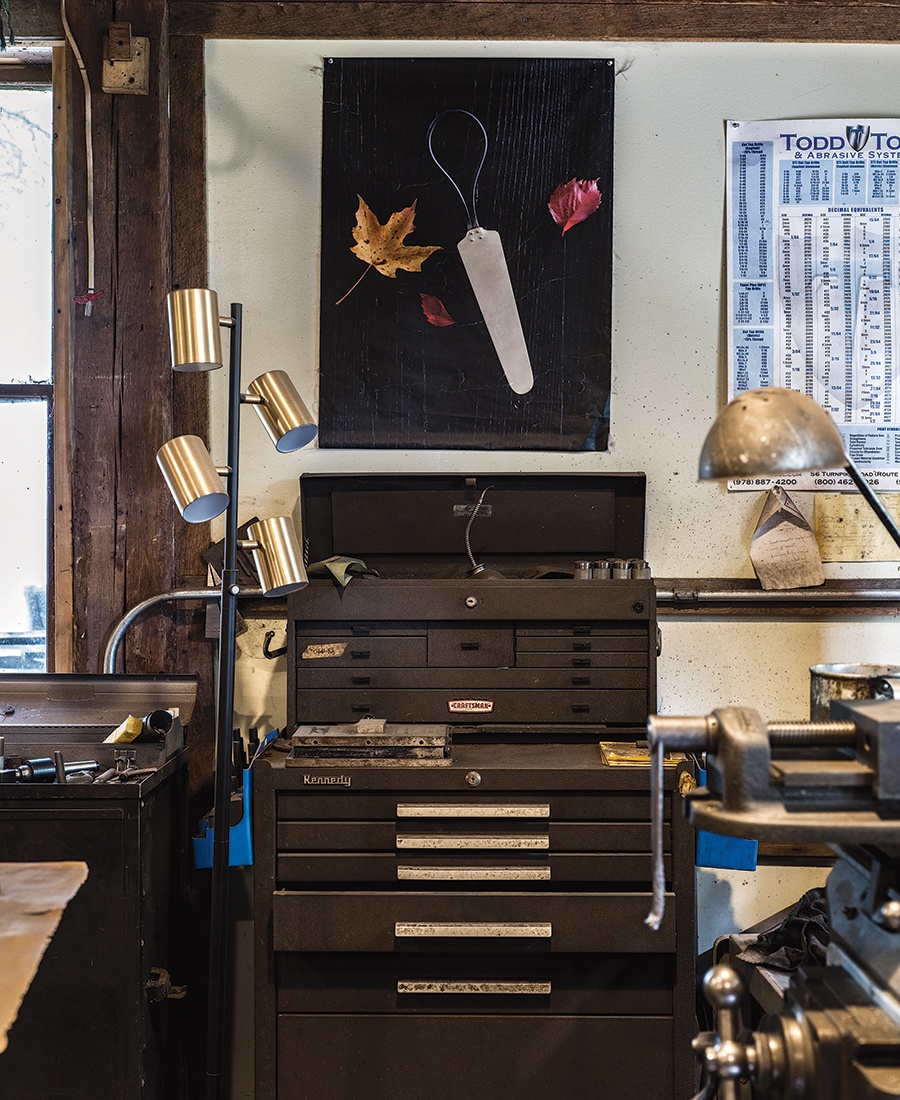
For the maker, finding a spacious studio of her own after years of working in Boston became more alluring. “I found myself wanting to get back to more space, more nature, more quiet,” she says. / Photo by Erin Little
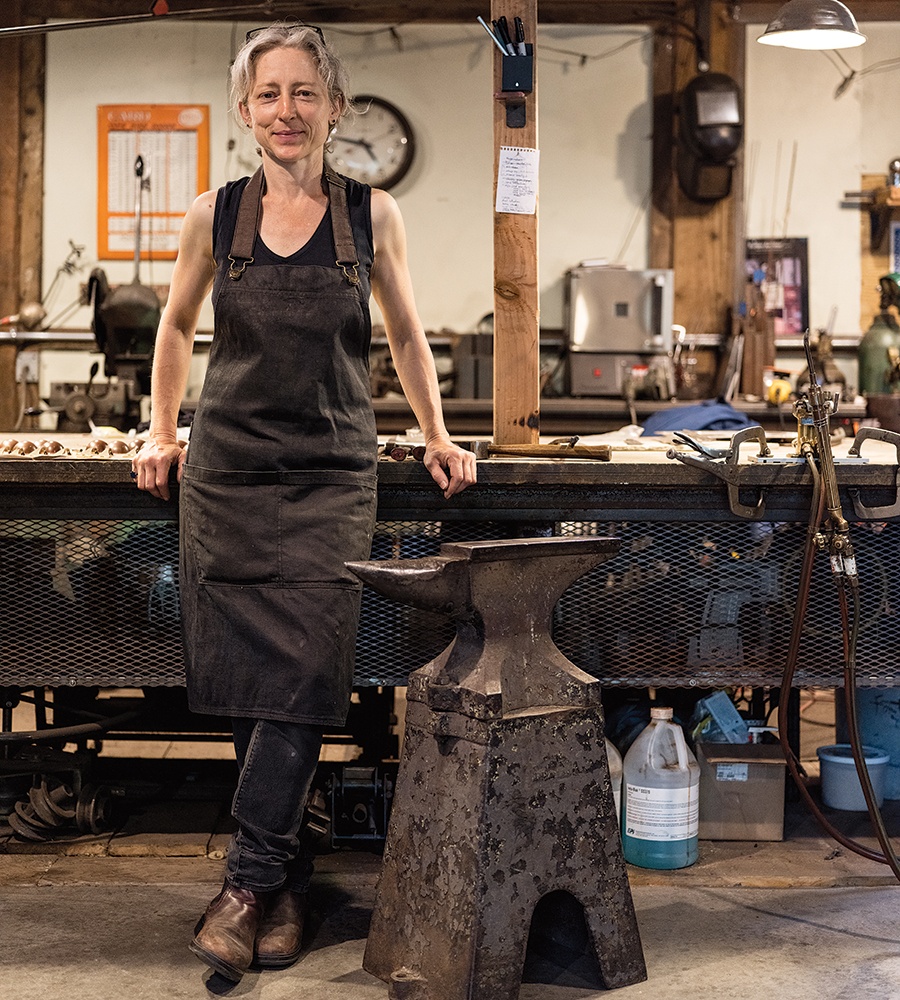
A large, central worktable anchors Moody’s post-and-beam barn in Maine, which brims with vintage machines and tools. / Photo by Erin Little
Moving her equipment to her new studio—a turn-of-the-century barn—came next. She furnished the antique space with the analog machines from her shop in Boston, some almost 100 years old. “They’re such gorgeous pieces in their own right,” she says. “But they’re also very effective, stable, and reliable. The sounds of them clunking along….it’s not the high-speed whir of a new, finely tuned modern machine.”
As Moody settled in with her tools, she mulled over what she could create on a smaller scale. “I used to have a few employees in Boston and we’d make these massive staircases. It was physically a lot of work,” she says. “The older I’ve gotten, my body is starting to not want to do that stuff as much.” The idea of creating something small enough to ship in a box appealed to Moody, while Maine’s booming farm-to-table movement planted another seed in her mind. “When I started thinking about food culture and the ritual of eating, that spoke to me,” she says, noting that her parents and great-grandparents were passionate home cooks. “It definitely resonated with me in a way that other things didn’t.”
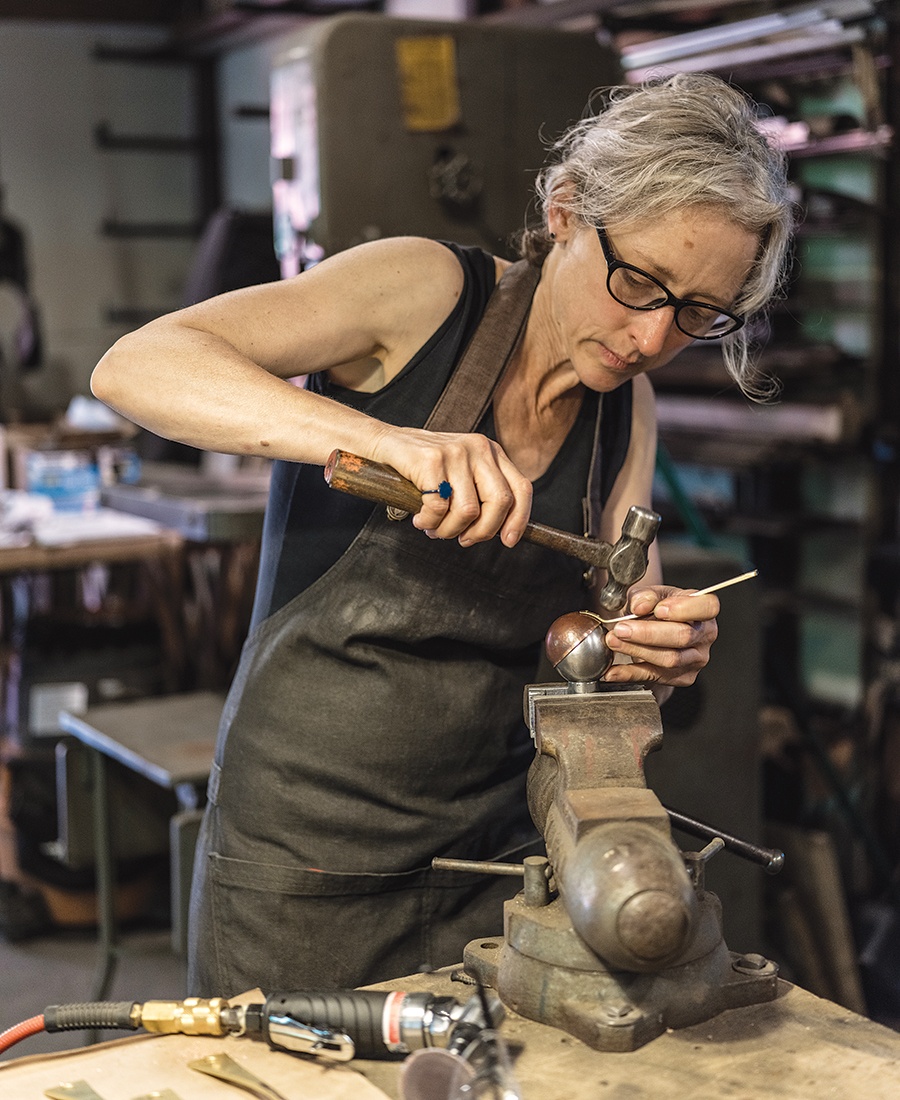
She rivets a brass handle onto the copper bowl of a coffee scoop, working from a metal form held in a vise. / Photo by Erin Little
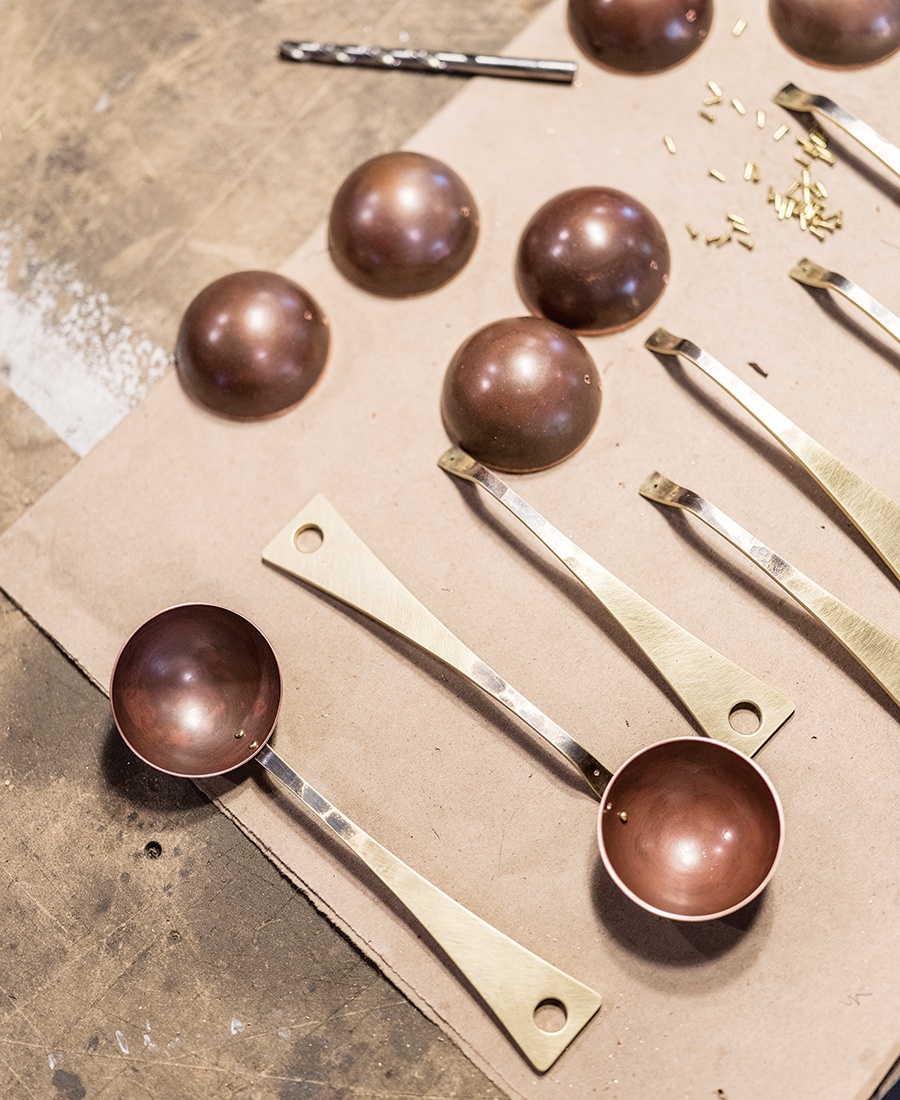
Unassembled coffee scoops lay near Moody’s vise. / Photo by Erin Little
So Moody began experimenting, forging metal tablespoon and teaspoon sets, coffee scoops, pickle forks, and serving knives. As she went on to form more complex pieces, such as a cake-knife set and aluminum-and-ebony chopsticks, buyer demand materialized almost immediately. Now, she continues to dream up new utensils, and recently released a line of burnished stainless steel wares that includes cheese knives and serving spoons. “I can’t keep anything in stock,” Moody admits, “which is really great.”
But that’s not all she’s celebrating these days: This October marks her business’s 20th anniversary. While the work has changed over the years, one thing has stayed the same for Moody: the magic of the craft—and the joy she feels when she hears from customers. “I run into people who say, ‘I use that coffee scoop every morning and it’s so incredible. It starts my day off great,’” she says. “And that’s exactly what I hoped the pieces would deliver when they go out into the world.”
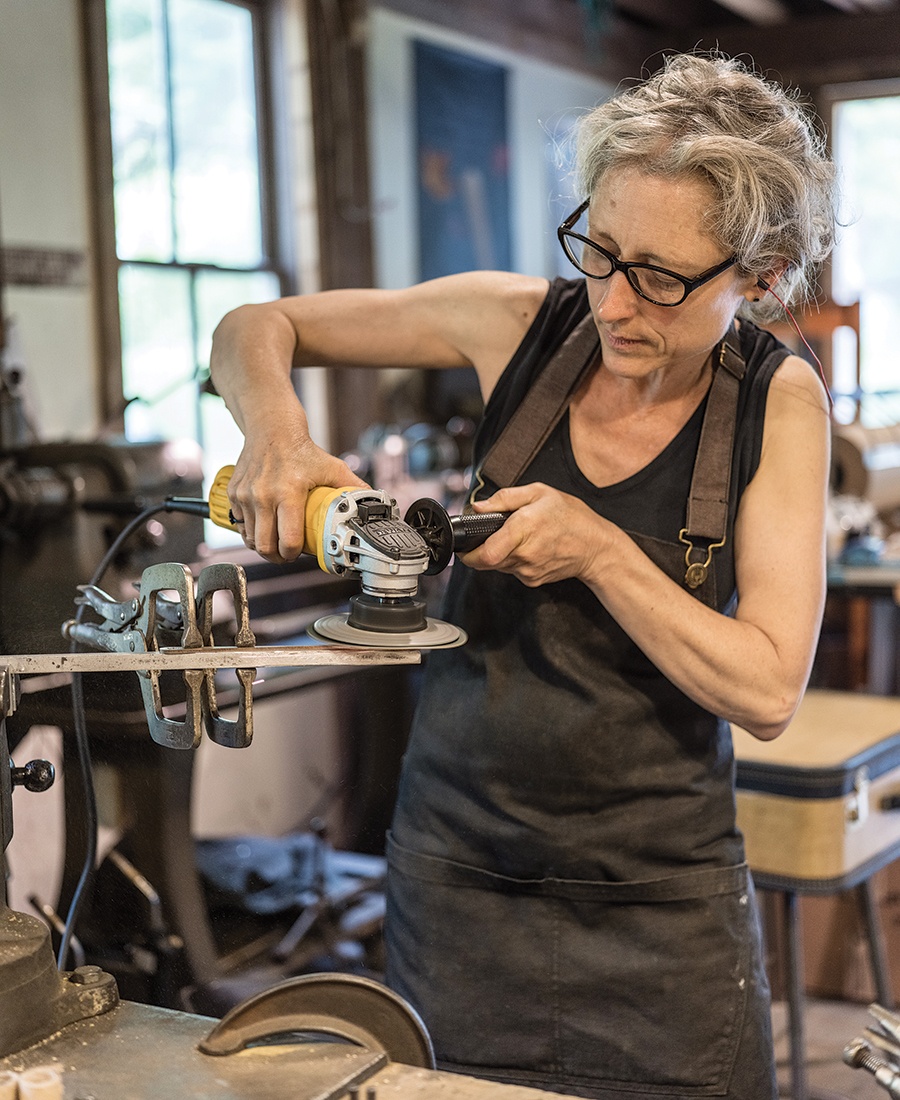
Moody sands down a stainless steel iced-tea spoon with an angle grinder to shape it before curving one end into a bowl. / Photo by Erin Little
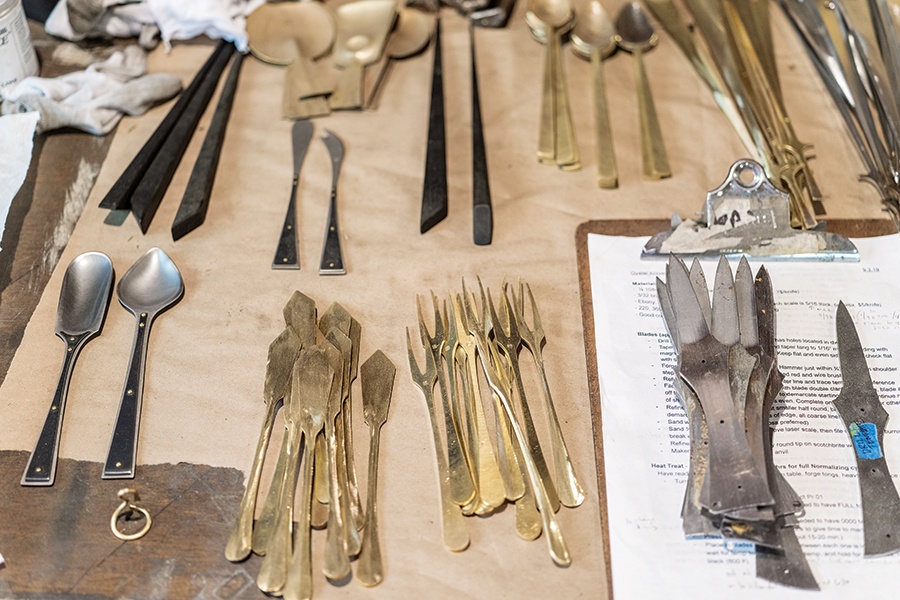
Works in progress, including utensil prototypes and oyster knives, spread across the worktable. / Photo by Erin Little
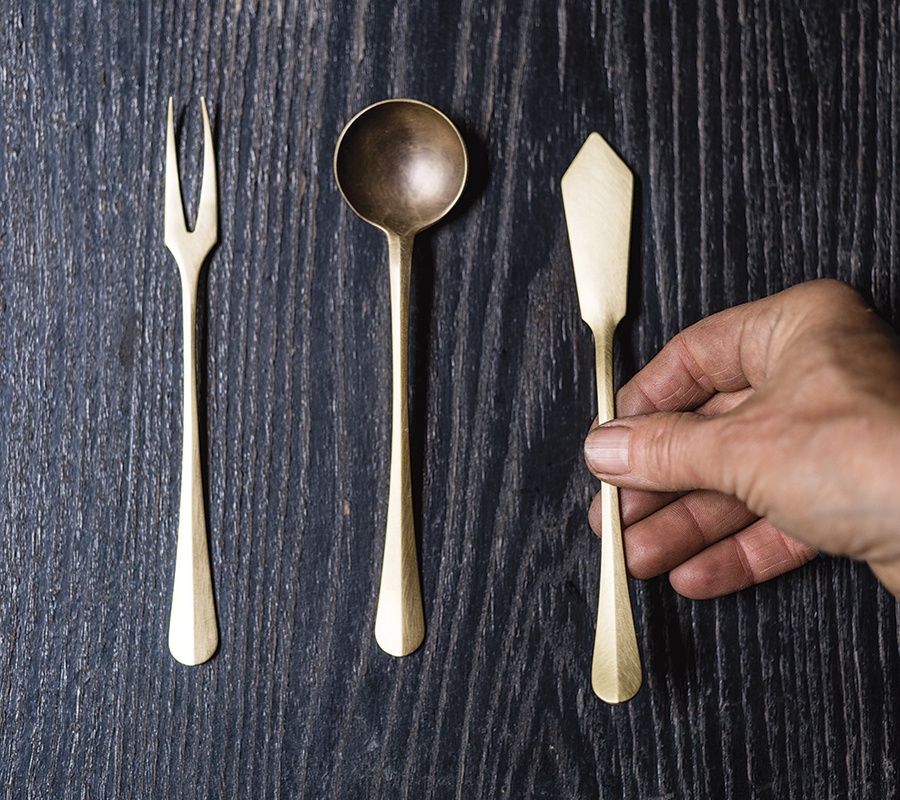
Perfect for cured meats, cheese, olives, dates, tapenades, and more, Moody’s brass serving trio is another customer favorite. / Photo by Erin Little


